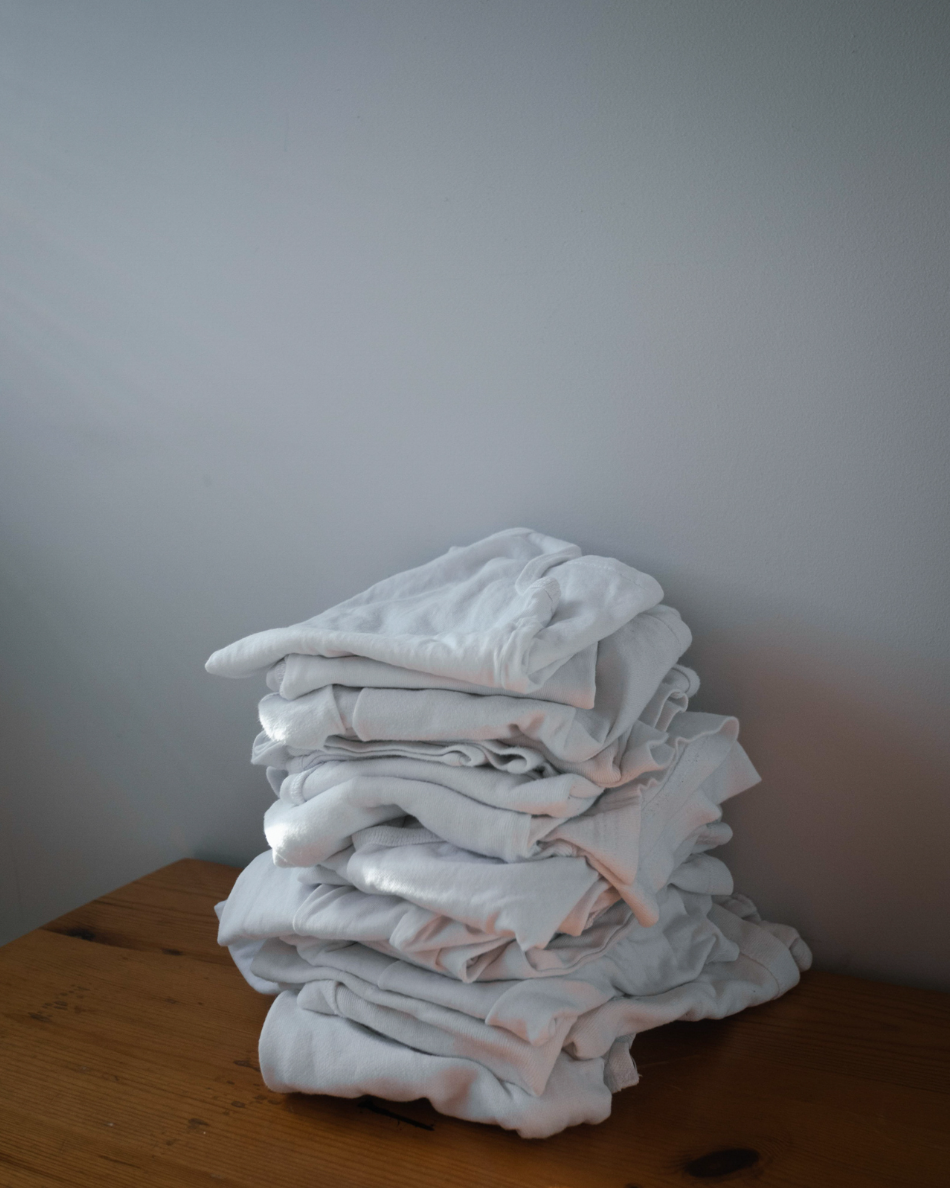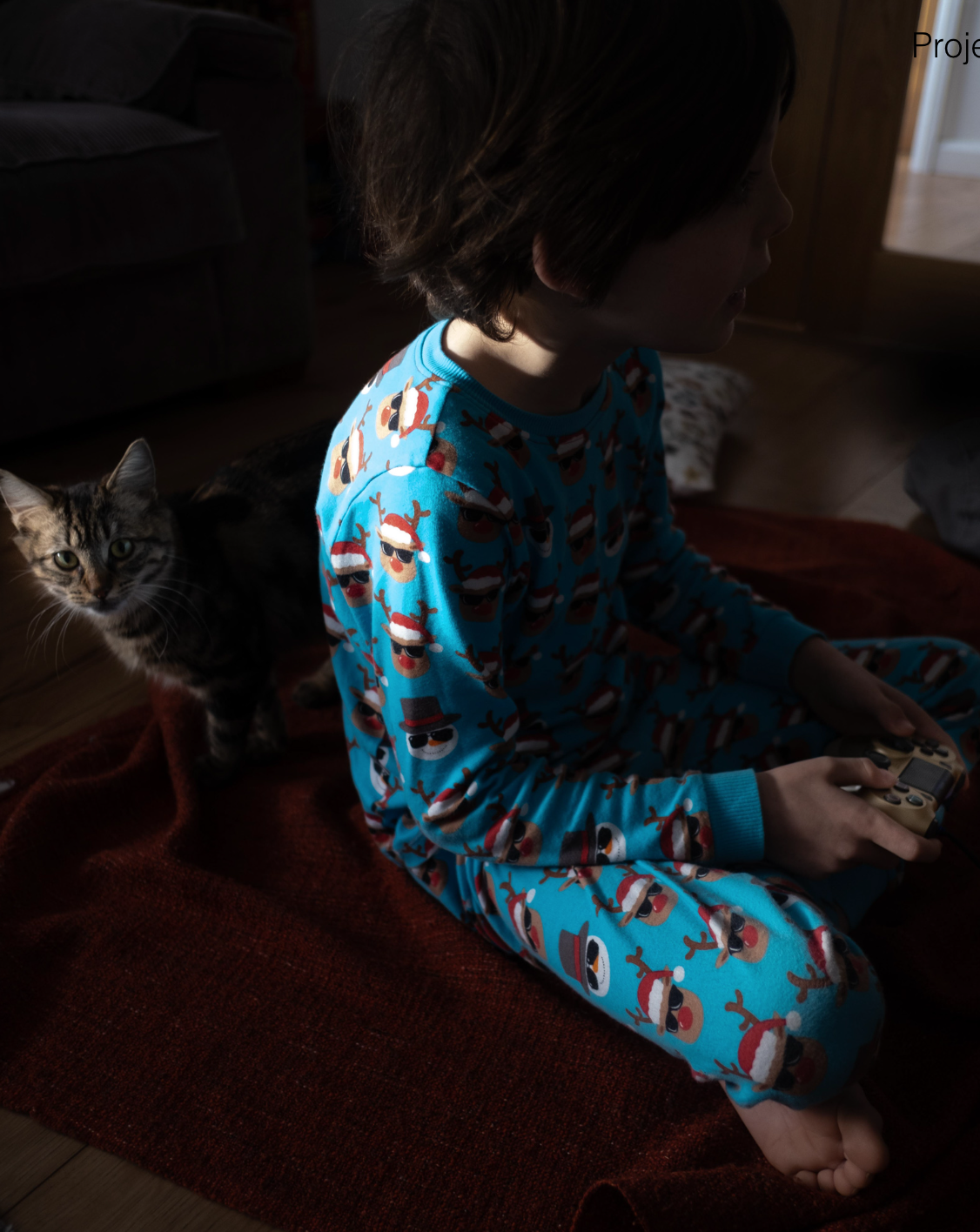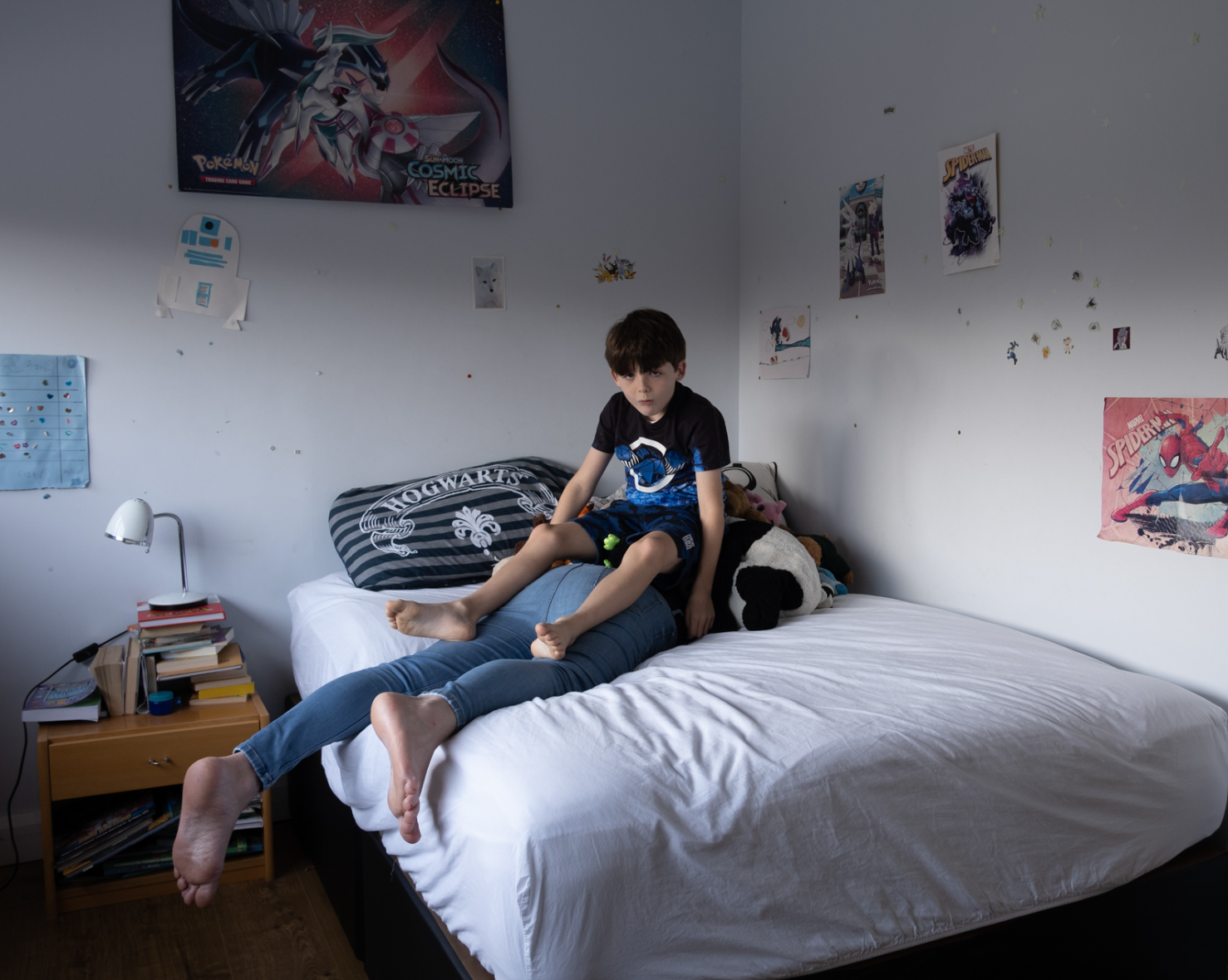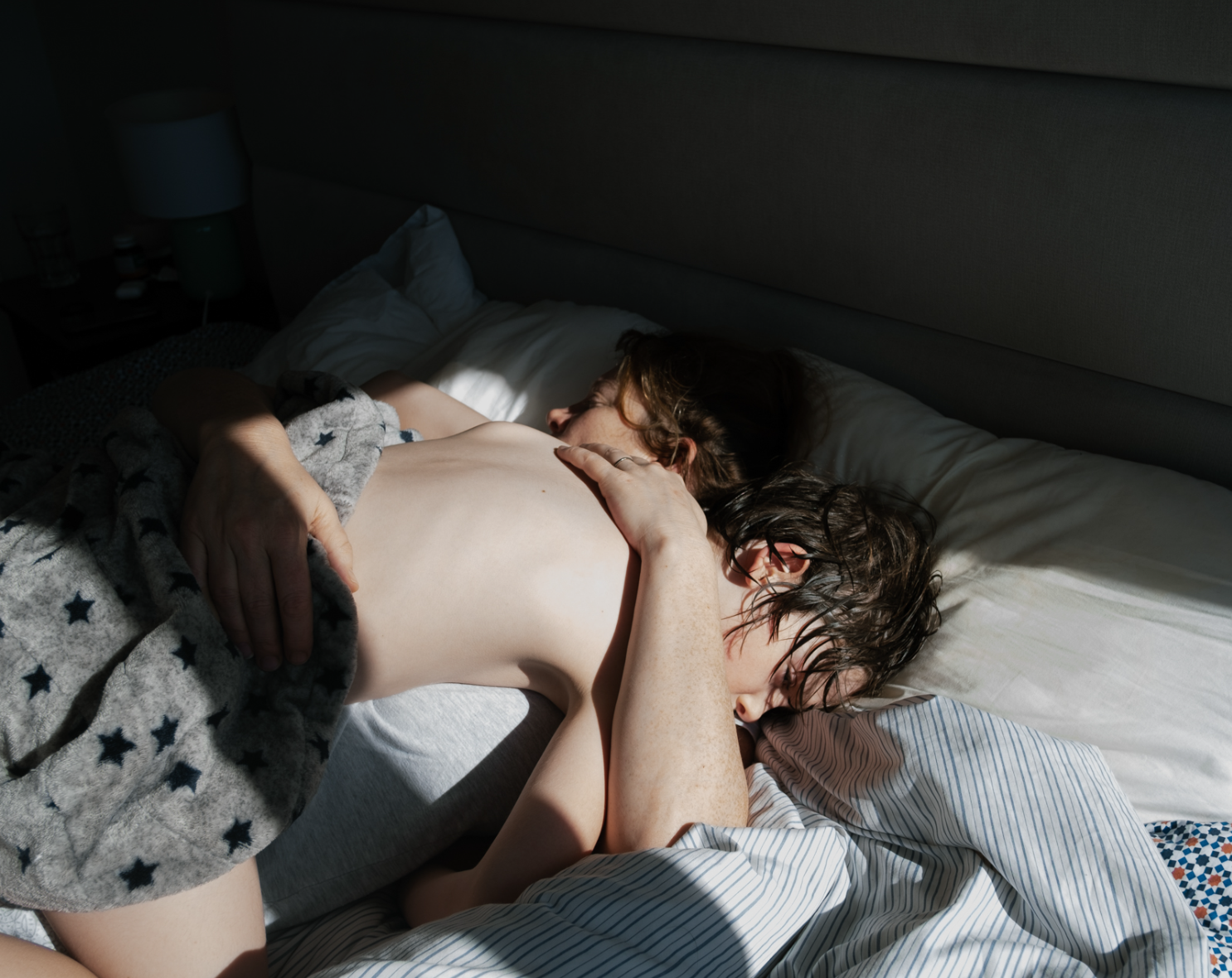The Holding Place
Lauren McLaughlin catches up with Emma O’Brien on her award winning photo series ‘The Holding Place’: a meditation on the physical, psychological and political landscape of Motherhood. The series was recently selected for Futures photography platform and has been published in the most recent issue of OVER journal, a Photo Ireland publication.
LM: What are/were your artistic influences for the work?
EO: I Love the Irish Contemporary Photography scene and I am influenced and inspired by a lot of Irish women artists, Miriam O’Connor, whose work playfully explores how we look and see, Mandy O’Neill’s works on childhood and community and Trish Morrisey who explores such issues as family and feminine and masculine roles, to mention just a few. Artists I admire that work with motherhood as a central theme include Carmen Winnant, Rinko Kawauchi, Reneke Dijkstra and Carrie Mae Weems But there are many more. I am also influenced by writers such as Andrea O’Reilly, Bell Hooks and Sara Ruddick who all write extensively on the experience of motherhood.
LM: You initially abandoned your creative practice after becoming a mother. What did you feel the main obstacles were to continuing your practice at that time, and what was it that eventually drew you back?
EO: The main obstacle was time and energy. I was working full time and parenting with all the domestic and emotional labour that goes with it, I had no time to think or work creatively. At that time I moved from the city closer to family as well which made attending exhibitions and talks virtually impossible. I was consumed by limiting beliefs about how I could not afford to pursue a creative practice as I now had a dependent child and must have a secure income, I couldn't consider projects that involved travel, and I couldn't go on residencies. It all felt very out of reach. As the years have passed I noticed that despite my endlessly repeated internal narrative about not having time to make work, I was in fact making the work. I still took photographs. With whatever camera was close to hand, working quickly, intuitively, snapshot in style, technically imperfect, I photographed the everyday. From this practice unconsciously I started my meditation on motherhood through photography.
LM: How has turning the camera on yourself and your own life changed the way you view yourself as an artist and as a mother?
EO: Motherhood forced me to work in a different way, it has redefined how I approach my work. When I was trying to represent the difficult feelings associated with motherhood I found the camera to be limited in what it could capture. The complex contradictory experiences of mothering required me to think more conceptually than I had in the past. To reveal more of my personal experience of motherhood I developed my practice to include constructed images and self portraits and now I am expanding into collage, photomontage working with archives and other media.
Through the process of creating “The Holding Place” I have transformed how I live and work. I have rejected the role society imposes on me. I no longer accept working long hours outside the home to return to another set of duties and responsibilities assigned only to me. I have reduced my hours at work and have demanded more contribution at home from my partner. I am finally placing a value on my arts practice and placing a value on my domestic labour. While still unpaid, by taking time for my practice, I am granting myself a reward for my labour in lieu of money and i have been lucky to receive arts Council of Ireland funding to support my practice in 2021 and 22. This transformation did not come easy, it was a difficult period of change and growth, characterised by feelings of fear and hopelessness at times.
Claiming this space has not only resulted in fulfilment for me as an artist, but my family relationships are strengthened. My Son has a happier mother, I am at home with him more, no longer burnt out, and hopefully I am modelling for him to be brave and pursue his passions. While I recognise my privilege to be able to pursue this lifestyle change, I believe this should not be a privilege, but a right for all women.
LM: What are the key messages that you hope the viewer will take from this series?
EO: With The Holding Place, I am echoing Andrea O’Reillys call for a feminist perspective on motherhood, the unfinished business of feminism. Liberal feminism, whose main concern was fighting for women to get a bigger slice of the pie, does little for the cause of motherhood. It hasn't changed capitalist society. Mothers who work outside the home have enormous responsibilities other than contributing to the paid labour force, but the paid labour force hasn't changed to accommodate those responsibilities, it expects mothers to fit into the existing systems. We need to value care as much as we value paid employment. I want recognition for the work mothers (and those who perform mothering) do.
I also want mothering and the domestic space to be recognised as a valid area of artistic enquiry.
I think 2 images that capture the contradictions of Motherhood are Morning Hug and Mother Load, In both I am almost completely hidden by Miles, in one he is lying on me in a warm embrace, and in the other he is sitting on me as I lie flattened on his bed surrounded by soft toys.
LM: Over the past couple of years there has been a surge of interest and stronger focus on motherhood within the arts (and particularly) within photography. How do you feel your work sits within those wider conversations?
EO: I think it has something to say! The work is another example of a mother using the locations and subjects available to her, limited as they are. By focusing on the domestic I am reminding viewers this is all I can see right now, as it is for most mothers. The more people see from our point of view the more likely it will change some day.
The conversation on motherhood is really just beginning, we will look back in years to come (or our daughters will) and wonder how we put up with it all and how our acceptance of our roles makes us somewhat complicit in maintaining this inequality. If photographers, artists and writers are bringing attention to the absurdity of motherhood, I hope I can join that conversation.
Emma O'Brien is a lens based artist from Westmeath in Ireland, her practice is concerned with themes of Mothering, family, childhood and home. Her work recognises and amplifies the notion that a mothers lived experience is a valid area of artistic enquiry. She has a degree in Photographic Media from Griffith College, Dublin. Recent achievements include publication of her current project as a TLP edition by PhotoIreland, Selected as an emerging talent in Europe by FreshEyes and GUP magazine, this includes publication in the book FreshEyes 2020 and exhibition in Rotterdam. Exhibition in Group show at Format International Photography Festival, Derby UK 2020 and Selected for upcoming publication MassisolationIRL, by the Gallery of Photography, Dublin. Emma is a Recipient of The Professional Development Award 2020, Arts Council of Ireland and The Agility Award 2021, by the Arts Council of Ireland.
Lauren McLaughlin is a multi-disciplinary artist, writer, curator and founder of Spilt Milk Gallery CIC. Throughout these roles, her desire is to amplify the devalued and often invisible experiences of mothering, caregiving and gendered work through a feminist lens and create space for artist m/others to be equally represented in our culture.






